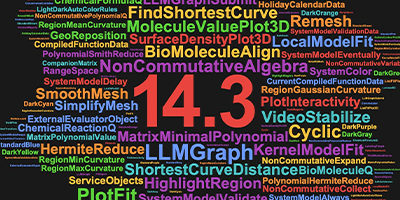International Mathematica Symposium
I’m looking forward to attending the upcoming International Mathematica Symposium (IMS) in Maastricht, the Netherlands, June 20–24. IMS is an interdisciplinary conference run by Mathematica users, and it covers the wide range of applications of Mathematica. Held every two years (sometimes every year) since 1995, this one is the ninth. It has been located in a variety of places, such as Japan, Australia, Canada and in Europe.
I was present at the first IMS in Southampton, England in 1995 and have attended most of them since. I have some fond memories of discussing computational theory under the midnight sun in Rovaniemi, Finland; getting to grips with the Tokyo subway system; explaining details of the Mathematica compiler in Hyde Park, London; and studying mussel shells (while enjoying seafood) in Fremantle, Australia. It’s interesting to see how both Mathematica and IMS have developed and grown in the last thirteen years.
What I like about IMS is its focus as a Mathematica user event. This gives it a contrast with the Mathematica technology conferences (these are typically held in Champaign, Illinois, in October). IMS presentations are by users and, since it is an interdisciplinary event, these are often very wide ranging but use Mathematica as a common thread. This uniform language means that material is often much more accessible to people outside the subject matter. It allows mathematicians, engineers, scientists, financiers, economists and others, from education, industry and research, to find a common meeting ground to exchange ideas and techniques. This variety gives attendees a good opportunity to get insight into other subjects, and perhaps learn new methods they can bring to their own work. It also gives them a good opportunity to compare and improve their use of Mathematica.
It is also interesting to meet the many different sorts of Mathematica users. I like to see the interesting ways that people apply Mathematica, often finding angles and aspects that we had not completely anticipated. I also like to get feedback on parts of the system that people would like to see improved and where they have trouble. Sometimes, of course, I can help them immediately with my own experience and knowledge, but sometimes improvements are longer term. There are a number of other Mathematica developers at IMS and I’m sure they all find it similarly rewarding.
Anyway, if you are interested in increasing your experience of Mathematica and getting involved in the community of users, I strongly urge you to attend the 9th IMS in Maastrict. You can find details on the IMS website. I hope to see you there.



Comments